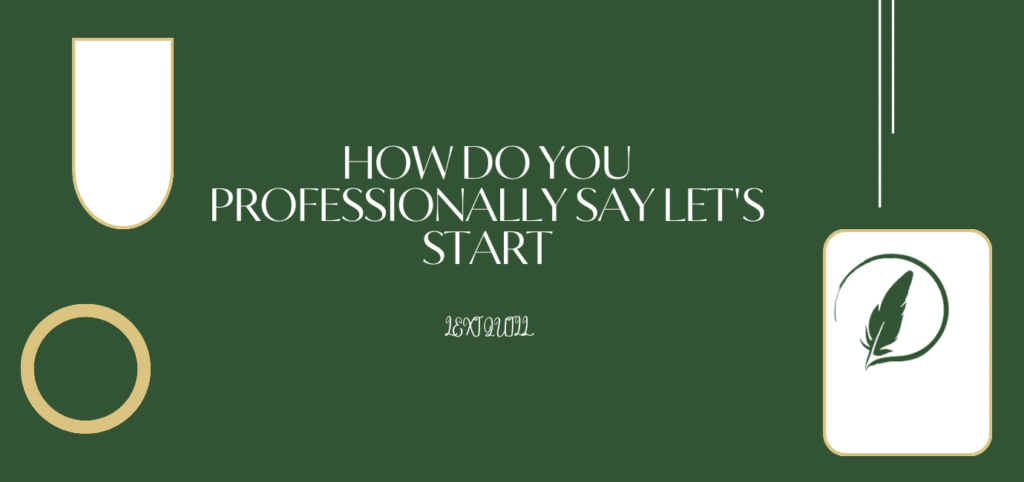In professional environments, the way we communicate carries significant weight. Whether you’re replying to a colleague’s gratitude, responding to a client’s request, or wrapping up a meeting, the words you choose influence how others perceive your credibility, reliability, and professionalism. One everyday phrase that often comes under scrutiny is “no problem.” While it’s friendly and casual, it may come across as too informal—or even dismissive—in business settings.
So, how do you professionally say “no problem”? In this article, we’ll explore polished alternatives that align better with business communication norms and offer specific contexts for their usage. These professional synonyms will help you navigate workplace conversations with clarity, confidence, and courtesy.
Why “No Problem” May Not Be Ideal in Professional Settings
While “no problem” is widely used in everyday speech to acknowledge gratitude or indicate that a request wasn’t a burden, in formal or client-facing situations it can unintentionally suggest that the request could have been a problem. This subtle nuance might undermine the supportive tone you want to convey in a professional interaction.
That’s why finding professional synonyms for “no problem” can enhance your workplace communication, especially in customer service, business emails, job interviews, and team collaboration.
1. You’re Welcome – A Timeless, Professional Response
Nuance: “You’re welcome” is the classic response to someone expressing thanks. It’s respectful, neutral, and universally appropriate across all professional settings.
When to Use It:
- In client emails or calls
- After someone thanks you in a meeting
- During interviews or networking events
Example Sentence:
“Thank you for reviewing the proposal on short notice.”
“You’re welcome. I’m glad I could assist.”
Business Synonyms: “Certainly,” “My pleasure,” “Of course”
2. My Pleasure – A Polished and Positive Alternative
Nuance: “My pleasure” expresses enthusiasm and professionalism. It conveys that you were genuinely happy to help and shows a proactive attitude.
When to Use It:
- In customer service or client-facing roles
- When you want to express friendliness and professionalism simultaneously
- In internal communications to express gratitude
Example Sentence:
“Thanks for helping me troubleshoot that issue.”
“My pleasure. Let me know if anything else comes up.”
Professional Synonyms: “Happy to help,” “Glad to assist”
3. Certainly – Formal and Assertive
Nuance: “Certainly” is a confident, assertive way to acknowledge a request or show agreement. It’s slightly more formal and works well in structured business contexts.
When to Use It:
- Responding to superiors or executives
- Formal emails or official presentations
- When agreeing to help with something
Example Sentence:
“Could you send the updated report by end of day?”
“Certainly. I’ll ensure it’s submitted on time.”
Business Synonyms: “Of course,” “Absolutely”
4. I’m Happy to Help – Warm and Approachable
Nuance: This alternative adds a touch of empathy and approachability. It works especially well when you want to be encouraging or collaborative.
When to Use It:
- In team environments or with colleagues
- Offering assistance to junior staff or interns
- Email replies when acknowledging someone’s gratitude
Example Sentence:
“Thanks for taking the time to explain that.”
“I’m happy to help anytime.”
Professional Synonyms: “Glad to support,” “Always here to assist”
5. Of Course – Casual Yet Professional
Nuance: “Of course” strikes a nice balance between professional and relaxed. It implies that helping was expected and natural, without any obligation.
When to Use It:
- In quick verbal exchanges or chat messages
- When replying to familiar coworkers or long-term clients
- Informal professional settings
Example Sentence:
“Thanks for sending that over so quickly.”
“Of course! Let me know if you need anything else.”
Business Synonyms: “Certainly,” “No worries” (use with caution)
6. Anytime – Friendly and Flexible
Nuance: “Anytime” is informal but still courteous. It indicates a willingness to assist again in the future, promoting good rapport.
When to Use It:
- In casual workplace settings
- Among familiar colleagues or regular clients
- As a follow-up to an appreciative message
Example Sentence:
“Appreciate your help with the onboarding materials.”
“Anytime! Just shoot me a message if you need anything else.”
Professional Synonyms: “Always available,” “Feel free to reach out”
7. Not at All – Polite and Reassuring
Nuance: “Not at all” downplays any inconvenience the favor might have caused. It’s more common in British English but still appropriate in global business interactions.
When to Use It:
- When someone is overly apologetic for asking for help
- Formal conversations where you want to be especially courteous
Example Sentence:
“I’m sorry to bother you with this last-minute request.”
“Not at all. I’m happy to assist.”
Professional Synonyms: “No trouble,” “Don’t mention it”
Why Professional Language Matters
Adopting more refined vocabulary isn’t just about sounding better—it’s about building trust, respect, and a positive image in the workplace. Here’s why these alternatives to “no problem” matter:
- Clarity: Professional phrases reduce ambiguity and eliminate casual tones that may not translate well across different teams or cultures.
- Credibility: Using polished language can enhance how others perceive your competence and emotional intelligence.
- Relationship Building: Thoughtful communication helps create stronger, more respectful relationships with colleagues, clients, and superiors.
Conclusion:
Effective communication starts with mindful word choice. While “no problem” might feel natural in casual interactions, shifting to more professional alternatives like “you’re welcome,” “my pleasure,” or “certainly” can help you convey respect, competence, and confidence.
By incorporating these professional synonyms for “no problem” into your everyday vocabulary, you’ll stand out as someone who values courtesy and professionalism—qualities that go a long way in building a successful career.
So next time you’re tempted to say “no problem,” pause and choose a phrase that better aligns with the tone and context of your professional environment.
Start integrating these alternatives today and watch your communication skills flourish.








